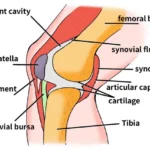What is chronic fatigue syndrome?
Chronic fatigue syndrome (CFS) is a condition that involves long-term disabling tiredness.
It affects about 200,000 people in the UK, and it generally develops between the ages of 20 and 40. It is three times as common in women as in men.
Chronic fatigue syndrome is also known as myalgic encephalomyelitis, or ME.
Can chronic fatigue syndrome be cured?
There is no cure for chronic fatigue syndrome. Symptoms can fluctuate and are different for each person. Some people will completely recover from the condition within a couple of years, whereas others are affected for a longer period of time. Those who are diagnosed with the condition at a young age tend to have a better long-term outlook.
What are the symptoms?
The main symptoms of chronic fatigue syndrome are persistent tiredness – tiredness that doesn’t improve much after rest, and tends to develop a day after activity (known as “post-exertional malaise”.
In addition, it is common to develop other symptoms, including:
• sleeping problems – such as sleeping too much, too little, or having irregular sleeping patterns
• cognitive problems – difficulty with memory, concentration, attention span, or planning
• muscle pain or joint pain
• headaches
• sore throat
• dizziness or nausea
• heart palpitations
Symptoms generally get worse after overexertion and can vary from day to day.
The symptoms can also vary from person to person, leading many doctors to believe that chronic fatigue syndrome could represent a number of different conditions rather than just one.
What causes chronic fatigue syndrome?
The cause of chronic fatigue syndrome is not known. Currently, the most popular theory is that it is caused by a viral infection. However, it is not known why symptoms of chronic fatigue syndrome persist even after the original infection has cleared up, and there are many people who develop chronic fatigue syndrome without an infection.
Other suspected “triggers” of chronic fatigue syndrome include:
• bacterial infections
• hormonal imbalance
• stress
• depression
How is it diagnosed?
There is no test to diagnose chronic fatigue syndrome. Chronic fatigue syndrome is generally diagnosed when the doctor has made an assessment of your symptoms and can’t find another cause. To rule out other conditions, the doctor might ask for blood and urine tests in addition to a clinical examination.
How is it treated?
Treatment for chronic fatigue syndrome can include advice and guidance, medication, and therapy.
Advice and guidance
There are a lot of things you can do to manage chronic fatigue syndrome, and your doctor will likely advise you on:
• how to get a better night’s sleep
• how to incorporate periods of rest into your routine
• how to manage pain or stress through relaxation techniques
Medication
Although there is no medication to treat chronic fatigue syndrome directly, the doctor might treat pain or sleep problems with antidepressants or might recommend over-the-counter painkillers.
Therapy
Graded exercise therapy (GET) is commonly recommended for chronic fatigue syndrome. GET is a structured treatment involving a physiotherapist or occupational therapist that aims to help you gradually increase your ability to physical activity.
Cognitive behavioural therapy (CBT) can help you establish a better sleep routine and manage your energy levels, as well as cope with the psychological impact of your condition. CBT is carried out by a psychotherapist.





